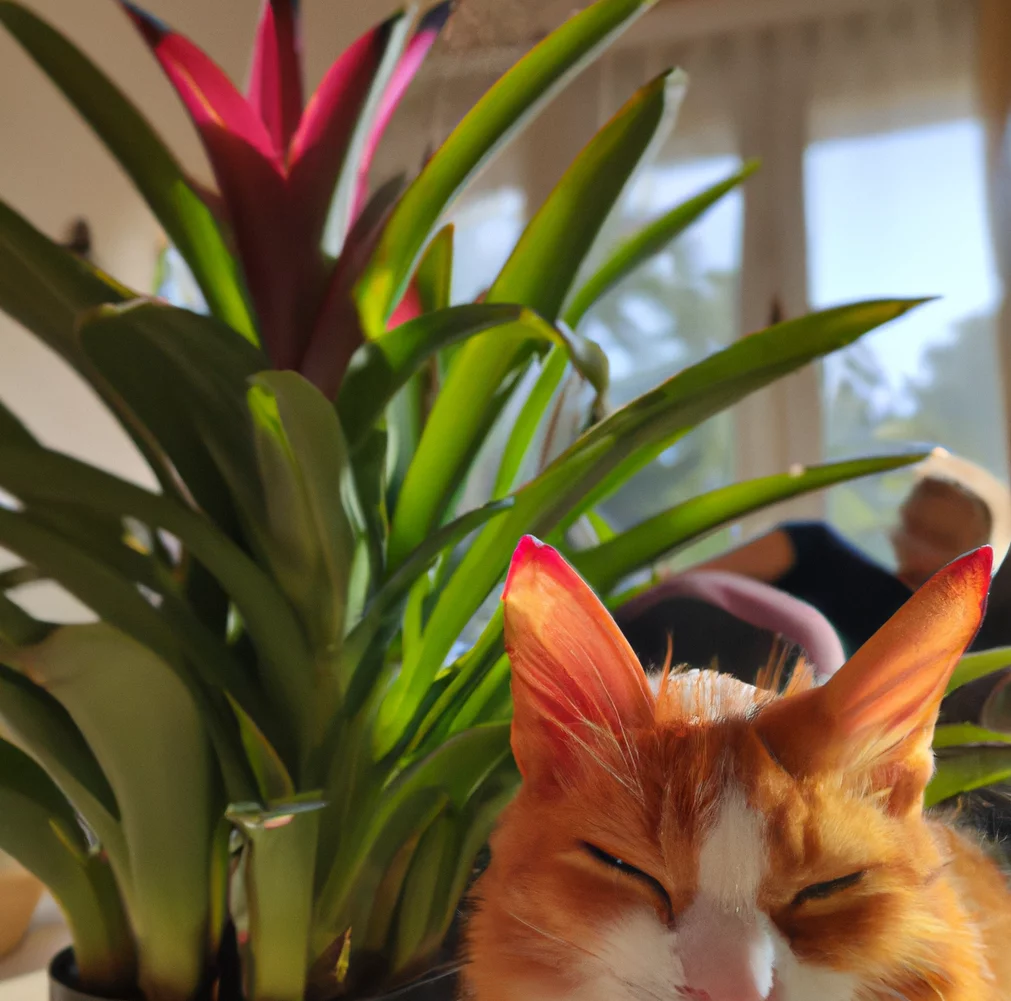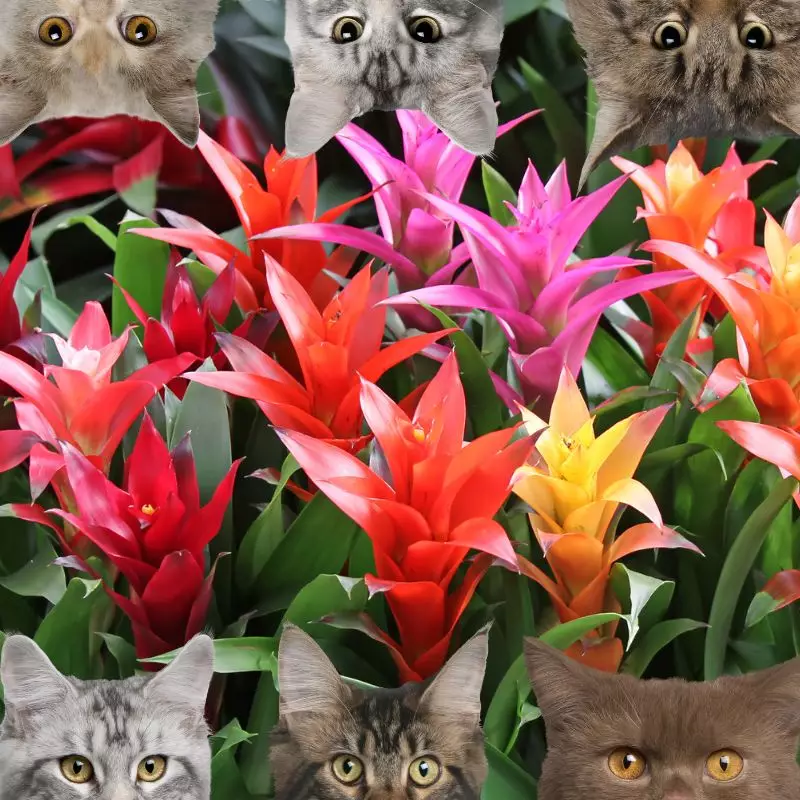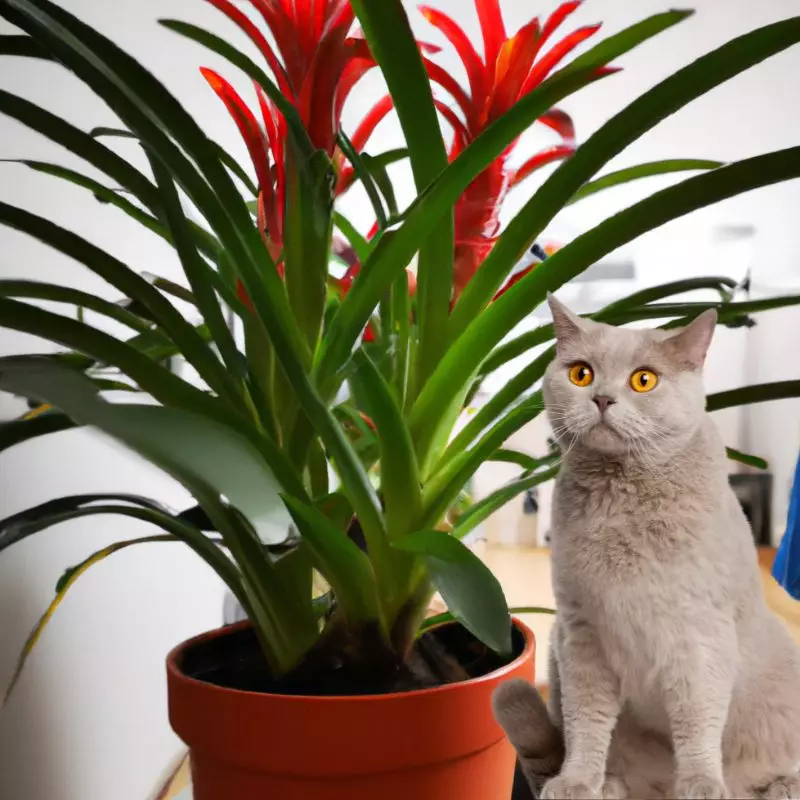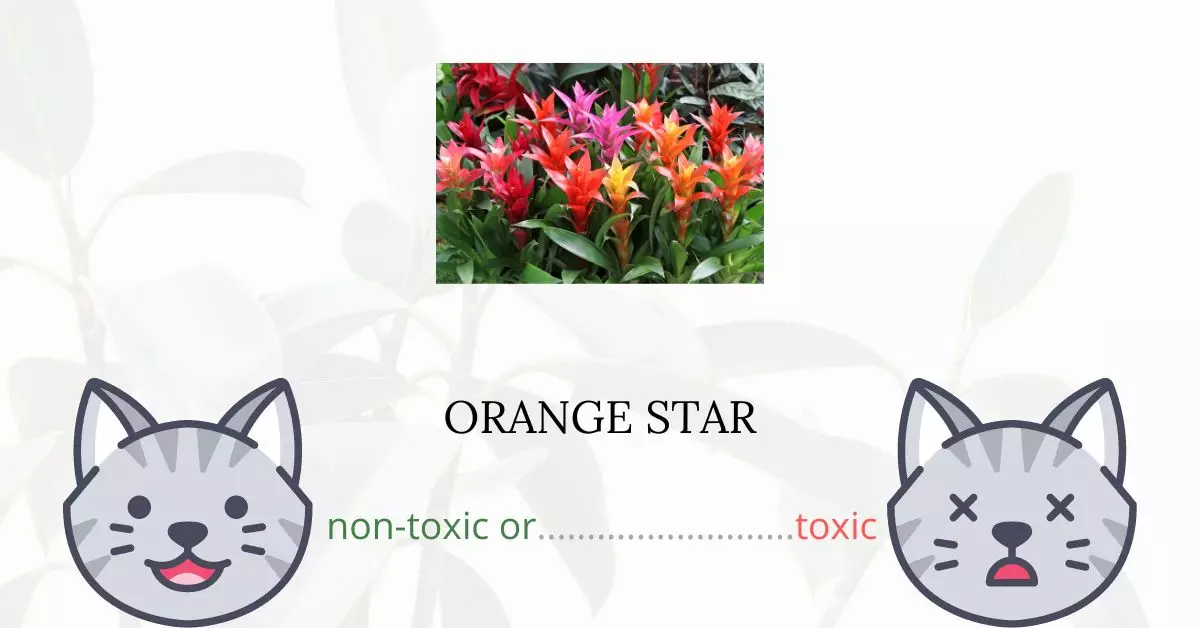No, the Orange Star plant from the Bromeliaceae family is not toxic to cats. However, it is essential to note that there is another plant named “Orange Star” from the Liliaceae family, which some websites regard as toxic to felines. While the Bromeliaceae variant is recognized as safe for cats, consumption can still result in mild GI irritation, manifesting as vomiting or diarrhea.
This article is a culmination of collaboration with a team of experienced DVMs (Doctors of Veterinary Medicine). Their invaluable insights and expertise ensure that we provide accurate and current information regarding the potential risks associated with various plants, specifically the Orange Star in this context. Furthermore, our research extends to high-authority websites such as the ASPCA and PetMD to confirm and substantiate our findings.
Can Cats Eat Orange Star?

Your cat might enjoy eating the leaves of the orange star since they are pleasant and crunchy. If your cat had a few bites, you shouldn’t be concerned. They are not harmful to cats but can still make them throw up or have diarrhea.
Additionally, you ought to be conscious of the products you use for your plants. Commercial fertilizers and insecticides, for example, can leave hazardous chemical residues on plants. If your cat ate or inhaled these remnants, it might poison them and put them in danger of dying.
What is an Orange Star?

The flowering plant species known as orange star (Guzmania lingulata), often referred to as the droop-head tufted airplant or the scarlet star, belongs to the subfamily Tillandsioideae of the Bromeliaceae family. The Latin word lingulata means “tongue-shaped,” and the foliage develops into a star-shaped basal rosette before blooming into an orange and red-bracted inflorescence. This epiphytic perennial is native to rainforest habitats in Central America, northern and central South America, and southern Mexico. With variants producing flowers in hues of maroon, red, orange, yellow, or pink, it is one of the most widely grown varieties of bromeliads.
Keeping Cats Away From Orange Star

Tape works to repel cats by using the element of surprise and is non-toxic and inexpensive. The cat will be considerably less likely to jump up the first time or two it has to cope with these bothersome cling-ons since it cannot see where it will land.
Your cat might forget she ever made goo-goo eyes at your plants in a semi-shaded garden bed with a gentle mulch of grass clippings. Put safe delicacies like cat grass, cat mint, or pansies in this feline Eden.
Plants to Avoid For Your Cats
If you are a cat owner and unsure if the plants growing in your yard are harmful to your cats, check out this list of toxic plants for cats. You can also check our list of non-toxic plants for cats.





